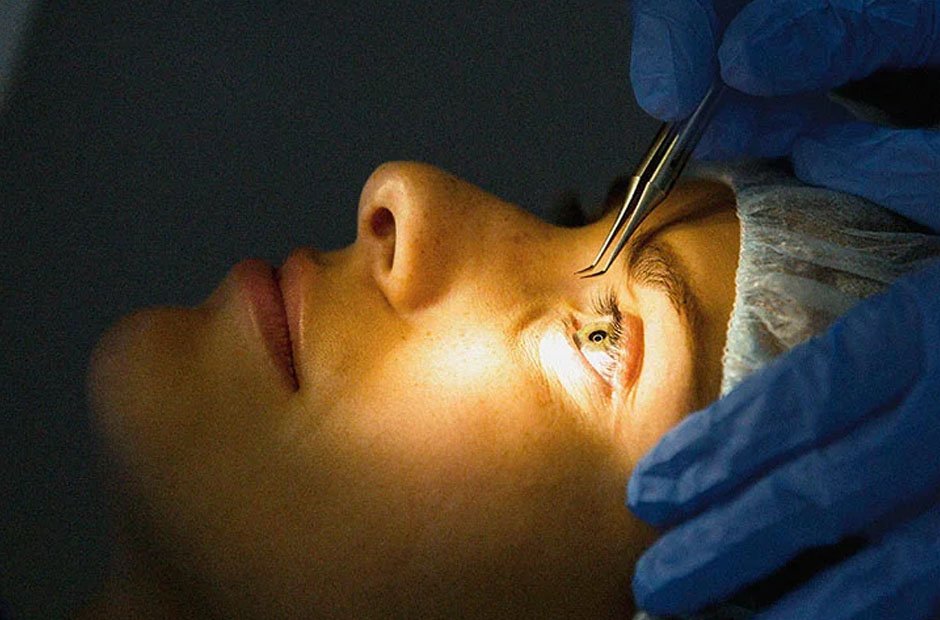Laser eye surgery is used to correct vision problems like nearsightedness, farsightedness, and astigmatism. This procedure involves using a laser to reshape the cornea, resolving vision issues. If you are considering laser surgery, you may wonder what happens during the procedure. Here is everything that happens before, during, and after laser surgery:
Before Laser Surgery
You need an initial consultation with your eye doctor to determine whether you are a good candidate for laser eye surgery. Here is what to expect during the initial consultation:
Initial Evaluation
During the initial consultation, your doctor assesses your eye health and gathers information about past vision treatments you have had. Your eye doctor measures the size of your cornea and notes any irregularities in the shape and thickness to determine how much reshaping is necessary.
If you wear contact lenses, your doctor may advise you to switch to glasses several weeks before your evaluation. The use of contact lenses can alter the corneal curvature. Discontinuing contact lenses is necessary for corneas to return to their natural shape, allowing for accurate measurements. Your doctor may also ask about any medications you are taking and any medications you are allergic to.
After the examination, your eye doctor informs you whether you are a candidate for eye surgery. If you are not a candidate for laser surgery, your doctor may have information on alternative treatments.
Pre-operative Preparations
If you are a candidate for laser surgery, your doctor informs you of its risks and benefits and how to prepare for surgery. Eye doctors also advise against using eye makeup, creams, and lotions around the eyes before surgery to keep debris out of the eye and minimize your risk of infection.
During Laser Surgery
On the day of your surgery, you lie on a reclining chair in the surgery room to give your doctor better access to your eye. Your doctor may provide some medication to help you relax. The doctor numbs your eyes using anesthetic eye drops to prevent pain and discomfort during the procedure. The doctor cleans the area around your eye and uses a lid speculum to keep your eye open.
LASIK (laser-assisted in situ keratomileusis) is the most common type of laser surgery. The eye doctor uses a laser during surgery to create a thin, hinged flap on the cornea’s outermost layer. You may experience a feeling of pressure and dimming vision when the doctor cuts the flap. The eye doctor folds the flap to expose the underlying corneal tissue.
Once the cornea is exposed, the eye doctor uses a laser to reshape it. The laser pulses gently remove a precise amount of corneal tissue, reshaping the cornea’s curvature. Reshaping the cornea allows light to focus properly on the retina, correcting your vision.
Most laser systems used for eye surgery have advanced tracking technology that follows your eye’s movement in real-time. Continually monitoring eye movement makes the laser effective even if you move your eye during surgery. After reshaping the eye, the surgeon repositions the corneal flap, which heals without stitches.
After Laser Surgery
After surgery, you may experience an itching or burning sensation in your eyes and mild discomfort. Your doctor may give you pain medication to relieve irritation. It is also normal to have blurry vision after laser eye surgery. These symptoms should clear within a few days after the surgery.
Most patients experience improved vision immediately after laser surgery. Some may still have fluctuations in their vision for a few weeks. The results of laser surgery are visible after a few months, so do not worry if your vision does not improve immediately.
Following surgery, your doctor will give you eye care instructions to promote healing and minimize post-operative complications. These instructions typically include using antibiotic and anti-inflammatory eye drops to prevent infection and reduce inflammation. Your doctor may advise you to avoid rubbing your eyes, which might dislodge the flap, delaying healing. You may also need to avoid contact and water sports to protect your eyes.
Improve Your Vision With Laser Eye Surgery
Laser eye surgery is a highly effective procedure that can assist with your vision problems. The surgery is designed to be safe, precise, and minimally invasive, allowing easy recovery. If you are considering eye surgery, contact your eye doctor for an evaluation to determine your eligibility for laser surgery.


